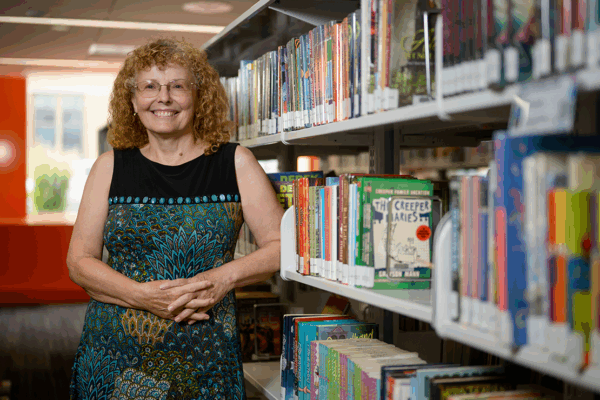For more than 30 years, I have had the privilege of serving as a youth librarian—in northwest Iowa, then in suburban communities and Ames. Across those years, I have witnessed the profound, positive power of books on children.
I’ve seen a child pick up a book and see a character with curly hair or skin color the same as theirs and go from thinking, “I can’t do that” to “They did it—so can I.” I saw a toddler’s joy at a first picture book, a middle-schooler discovering a book series they can’t put down, and a teenager finding a novel that feels written just for them.
Books also cultivate empathy, allowing children to feel what it’s like to live in someone else’s shoes; confront experiences they may never face directly; and imagine solutions to the challenges others encounter.
Yet today we are seeing a rise in attempts to block young people from reading widely. In 2023, a book ban law was passed in Iowa. Even though the ACLU of Iowa and others have managed to get it temporarily blocked, it resulted in 3,700 titles across 117 districts being removed. They included time-honored classics, like "1984" to "The Handmaid’s Tale."
Especially in this era of vast amounts of online information, books matter. Youth literature provides information and stories in a way that helps children process information in a completely different, more nuanced way.
Even Today, Books at School Matter
And it’s critical that young people have access to books at school. Not every child has a family who will take them to a public library. Not all children can afford to buy books. Each book removed from a school is a lost chance for children to learn about themselves, practice empathy, or see lives unlike their own.
Iowa has a proud history of championing intellectual freedom. In 1938, Forrest Spaulding, director of what was then the Des Moines Public Library (now the World Food Prize Hall of Laureates), drafted the Library Bill of Rights to counter censorship and intolerance. Adopted locally and later by the American Library Association, it set the foundation for equitable access to information. Iowa’s Open Records Law (1967) reinforced confidentiality for library records, protecting readers’ privacy and freedom to explore ideas. These milestones remind us that access to books is part of our state’s legacy—and that book bans contradict the principles Iowa pioneered.
Book bans are not new, but we are seeing this latest wave in part because of how much children’s literature has grown. Beginning in the 1970s, books featuring diverse voices across race, gender, and sexuality gave more young readers mirrors that reflect their own experiences.
Bans Like This Don’t Last
While I am disturbed at these latest attempts to ban children’s books, history reminds me bans like this do not last.
I’m heartened to see librarians, teachers, authors, students, and ordinary book lovers speaking up and standing up and asserting that books are lifelines, not threats.
I am optimistic that no matter what laws are passed, books and ideas prevail. We can’t remove a half century of flourishing youth literature from minds, our hearts—or our state.
Photo courtesy of Mark Looney.


